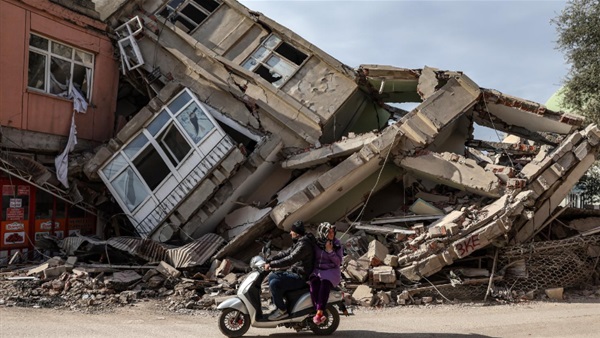World Powers Compete for Influence in Devastated Turkey as Earthquake Diplomacy Takes Center Stage

Turkey's earthquake has shaken not only the country but also
the international community. The country has been devastated by a catastrophic
earthquake that has destroyed several major cities, including Adiyaman,
Kahramanmaras, and Antakya. Yusuf Ozturk, an academic who returned to help the
rescue effort, lost 170 family members, friends, and acquaintances in the
disaster, and the number continues to rise. The situation has turned into a
disaster diplomacy event, where the world powers are competing for influence in
the rubble of Turkey.
The combined Chinese and Iranian team digging out Ozturk's
family represents the geopolitical rift between America, NATO, and their
western allies on one side and Russia, China, and Iran on the other. The
earthquake cut through a region where the Kurdish population is high, and the
humanitarian response could have political consequences as well. With elections
coming up in May, Kurdish loyalties could play an important role, and the
earthquake response is both a political and humanitarian issue.
Even though the UAE, Saudi Arabia, and Qatar have sent aid
packages to Turkey, their motives have come under scrutiny. The UAE has been
leading efforts by Arab countries that cut ties with Assad at the start of the
Syrian civil war to bring him "in from the cold." It is noteworthy
that the UAE sent $50 million of aid to President Assad of Syria, the same as
to Turkey, despite a far smaller loss of life there. The United States and
other Western states have also sent aid and rescue teams.
The earthquake has brought together unlikely allies, such as
Armenia, whose people deeply resent Turkey for the massacres of their grandfathers
in the dying years of the Ottoman Empire, but have still sent help. The Barzani
Charity Foundation, the charitable arm of the Barzani family, the ruling clan
of the semi-autonomous Kurdistan Region of Iraq, has also set up a large aid
center in Adiyaman. The Barzanis are western-aligned, conservative politically,
and historically opposed to the left-wing PKK.
Despite the politics surrounding the earthquake, the people
affected by the disaster are not concerned with the political ramifications but
rather the fate of their cities and loved ones. The earthquake has shattered
the lives of many, and the rescue teams are doing their best to find survivors
and bring them to safety. The question remains, how will the country hold
elections in May, and how will the disaster diplomacy affect the political
landscape of Turkey?







